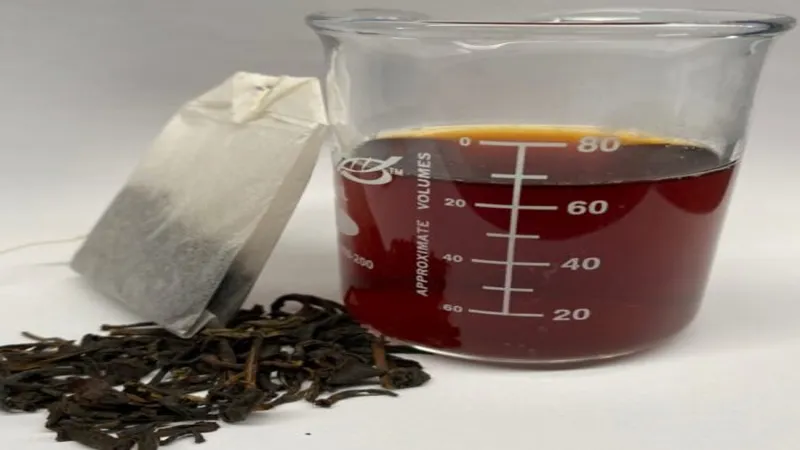
Brewing Tea: A Natural Way to Remove Heavy Metals
Imagine savoring a warm cup of tea, not just for its comforting flavor but also for its unexpected health benefits. Recent research suggests that brewing tea may significantly reduce toxic heavy metals in drinking water, offering a simple yet effective method for improving water quality. A study published in the journal ACS Food & Science Technology reveals that the high surface area of tea leaves allows them to adsorb harmful substances like lead and arsenic from boiling water. As we delve into the findings of this intriguing study, we explore how a daily ritual can contribute to better health and safer drinking water.
| Attribute | Details |
|---|---|
| Study Focus | Tea’s ability to adsorb heavy metals from drinking water. |
| Key Finding | Brewing tea can remove toxic metals, including lead, from water. |
| Daily Tea Drinkers | Approximately 2 billion people consume tea daily worldwide. |
| Common Metals Adsorbed | Lead, arsenic, cadmium, chromium, copper, zinc. |
| Best Tea Bags | Cellulose tea bags are most effective at adsorbing heavy metals. |
| Less Effective Tea Bags | Cotton and nylon tea bags showed little adsorption of metals. |
| Impact of Steeping Time | Longer steeping times result in more metal absorption. |
| Estimated Metal Removal | Brewing tea for 3-5 minutes can remove about 15% of lead. |
| Types of Tea Tested | Black, green, white peony, oolong, rooibos, chamomile. |
| Recommended Brewing Time | Steeping for longer periods (e.g., overnight) is more effective. |
| Health Benefits | May reduce risks associated with heavy metal exposure. |
The Science Behind Tea and Heavy Metals
Tea leaves are known for their ability to absorb heavy metals like lead and arsenic from water. This happens because tea leaves have a high surface area that allows them to catch these harmful substances easily. When you brew tea, the boiling water interacts with the leaves, causing them to release beneficial flavors while also grabbing onto toxic metals. This dual action makes tea not just a tasty drink, but also a potential helper in keeping our water cleaner.
Researchers found that brewing tea can reduce the amount of these dangerous metals in drinking water. For instance, a study showed that steeping tea for just three to five minutes can remove about 15% of lead from water. This means that enjoying a cup of tea could not only be a nice way to relax, but it might also protect us from toxins that can lead to health problems.
Frequently Asked Questions
Does brewing tea remove lead from water?
Yes, brewing tea can help remove lead and other heavy metals from water due to the high surface area of tea leaves that adsorb these toxins.
How does tea absorb heavy metals?
Tea leaves adsorb heavy metals through a process called adsorption, where toxins stick to the surface of the leaves while brewing.
What types of tea are best for removing metals?
Black tea, especially when finely ground, is most effective. Cellulose tea bags also perform better than cotton or nylon bags.
How long should I steep tea to remove toxins?
Steeping tea for three to five minutes can remove about 15% of lead from water. Longer steeping times increase metal absorption.
Are all tea bags equally effective?
No, cellulose tea bags are the best at adsorbing metals, while cotton and nylon bags are less effective and may release microplastics.
Can drinking tea improve health related to heavy metals?
Yes, regular tea consumption may reduce health risks associated with heavy metal exposure, such as heart disease and stroke.
Is tea a practical solution for water contamination?
While tea may not solve global water issues, it offers a simple method for improving water quality at home.
Summary
A recent study suggests that brewing tea can help remove toxic metals, like lead, from drinking water. The research highlights how tea leaves, due to their large surface area, can adsorb harmful substances while steeping in hot water. Although tea should not replace conventional water filters, it can passively reduce metal exposure for the 2 billion daily tea drinkers worldwide. The study found that using cellulose tea bags and steeping for longer periods increases metal absorption, potentially improving health outcomes related to heavy metal exposure. Overall, tea offers a simple way to enhance water safety.